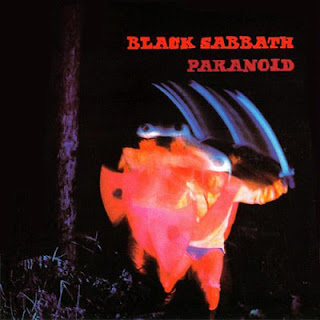It’s
actually fairly appropriate that Black Sabbath’s new album is titled 13, as 2013 is officially their year
after this album’s release. What could
have been a colossal failure, one where expectations were placed way too high
for a group of musicians in the twilight of their careers, turned into one of
the best albums in Sabbath’s catalog and my current frontrunner for album of
the year.
From
the start, this album grabs you and doesn’t let you go. It is one of the most complete albums of Sabbath’s
career as well as one of the most complete albums I have heard in a long time
from any artist. The best part is that
you can tell that the band mined their entire history to come up with the music
for the album. You can hear snippets of old
Sabbath, Dio Sabbath and even Ozzy’s solo stuff within the music itself. The band has done such a phenomenal job
layering the music as well as the vocals that it’s hard to tell that Bill Ward
isn’t present. Yes, Sabbath didn’t need
anything but a serviceable drummer because the rest of the band is the best at
what they do, but Brad Wilk actually does a great job of filling the gargantuan
shoes left by Bill Ward’s departure.
A quick
word about Tony Iommi and Geezer Butler.
These two musicians are up at the top of the list of greatness in their
respective instruments. The fact that
they are still doing it this well at their age (and Tony had cancer while they
were recording the album no less) is a testament to their ability and their
resilience. Seriously, if you haven’t,
go listen to the album. Does this sound
like a band that is anything but firing on all cylinders? Now realize that all of these guys are in
their mid to late sixties. I have no
idea how that’s even possible.
I kind
of expected the music to be great. I saw
Heaven and Hell (Black Sabbath with Dio at the helm) a few years ago and Tony
and Geezer were incredible then. What took
me by complete surprise was Ozzy. This
sounds like, for the first time in years, Ozzy is having fun while making an
album. Could that be a substance-induced
fun? Maybe. I like to think that it has something to do
with reuniting with his former bandmates though. I haven’t heard Ozzy sound this good, and
this invested in the album since No More
Tears waaaaay back in 1994. It
sounds like a second life in terms of creativity was given to the band as a
whole, but especially to Ozzy. Almost
like he created this record more for himself and not because Sharon said “Ozzy,
it’s time to do another solo record” (which I have a feeling was the driving
force behind the last two).
I
really want to give you some kind of criticism of this record, to even out the review,
but whether I’m just being swept off my feet by a band that I never thought I
would hear new music from, or I just refuse to think anything bad about a band
that I grew up playing way too loud on my parents’ stereo, I just can’t find
anything wrong. The album balances the
bluesiness of the first album, with the slow plodding doom of songs like “War
Pigs” or “Hand of Doom”. This is an
incredible album all around. If you can
get to a Best Buy, I would also suggest dropping a couple extra bucks to get
the album with the exclusive second disc that contains four more tracks that
don’t appear on the album proper. The
songs are shorter than those that made it on to the main album, but they are no
less incredible. This is by far my
favorite album of the year, and one that will stay within my car stereo
rotation for a long time to come. If
this is Sabbath’s swan song, which is probably the case, they are going out at
the top of their game.










